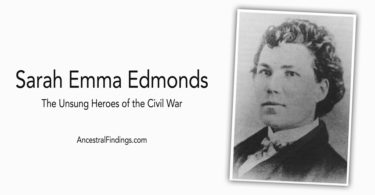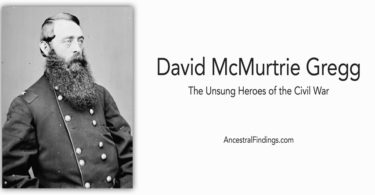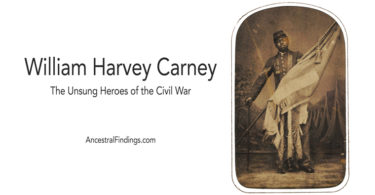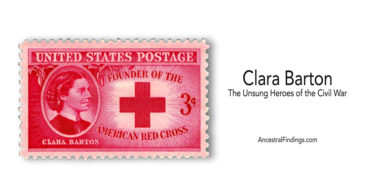Andre Cailloux was born into slavery in about 1825 (records on slaves were not always accurately kept in those days) in Louisiana. As one of the first African American officers in the Union Army to be killed in combat in the Civil War, his heroism was legendary before the war even ended. In fact, his story became a motivating and inspiring one for Union officials in recruiting more African American soldiers to the cause during the war.
Andre was considered a martyr for the Union cause, and his story was told for decades after the war. In 1890, during a project interviewing Civil War veterans, Colonel Douglass Wilson said of Andre,
If ever patriotic heroism deserved to be honored in stately marble o in brass that of Captain Caillioux deserves to be, and the American people will have never redeemed their gratitude to genuine patriotism until that debt is paid.
Andre was a mixed-race slave at his birth and lived his entire life in and near New Orleans. He was apprenticed as a cigar maker in his youth and was owned by the Duvernay family until the age of twenty-one when he petitioned for his freedom. The Duvrenay family supported him in this, and his petition for freedom (then called manumission) was granted by the all-Caucasian police jury in New Orleans in 1846.
At this point, New Orleans had been a mixed-race community for a long time, and there was already a well-established group of free African-Americans and other mixed-race people there. This group was established during the French colonial period and enjoyed a status between that of free whites and enslaved African Americans.
Unlike in other places in the United States, white men could take African-American women as common-law wives in New Orleans. They often acknowledged their children from these unions, paid for their educations, or arranged for them to apprentice in a skilled trade. Property could even be given to these children to hold in their own names.
The year after gaining his freedom, Andre married Felicie Coulon, a free Creole woman. Though Felicie had been born into slavery, her mother paid to have her freed. Felicie’s mother, Feliciana, was the common-law wife of a white slave owner named Valentin Encalada and was his slave for a time before they established their common-law marriage. Because children born to African-American women were considered slaves if the mother had been enslaved, Felicie was technically her father’s property at birth. However, Valentin allowed Feliciana to buy Felicie’s freedom since her parents were common law married.
Before the Civil War and after marrying Felicie, Andre made a living as a cigar maker and even established his own business. He made a modest but comfortable living and became a leader in the community of free African-Americans and mixed-race people in New Orleans.
Andre was an avid boxer, considered one of the best in New Orleans. He also financially supported a school for orphaned African-American children in the city. After gaining his freedom, Andre learned to read and was fluent in both French and English. He would have been considered a Renaissance man in any other period.
When the Civil War broke out, Andre was initially commissioned as a lieutenant in the Native Guard. This was a Confederate regiment of locals who were tasked with defending New Orleans. Andre took his duties in this role seriously and was one of the first African-American officers in any military unit in North America.
His unit was never called to duty, and when the Confederates began drafting white soldiers, they disbanded the Native Guard. Two months after the Native Guard was disbanded, the Union captured New Orleans, and Andre joined the Union Army. He was assigned to the 1st Louisiana Native Guard, Company E. He easily gained the respect of his commanding white officers in this unit.
Andre’s unit mostly did wood chopping and trench digging, called fatigue duty, until May of 1863, when they were moved to Port Hudson, Louisiana, to surround the Confederate fortifications. The Union wanted to gain control of the nearby town of Vicksburg, which would provide them strategic access to the mouth of the Mississippi River.
General Grant laid siege to Vicksburg while Andre’s commanding officer did the same to Port Hudson. The Port Hudson siege was not planned well by the commanding officer, and the port was well-fortified by Confederate troops. Andre was ordered to lead a unit of one hundred men in a sharpshooting assault on the Confederate troops there. Andre’s unit was almost demolished in this assault, as it was almost a suicide mission. Still, Andre was heard shouting encouraging words to his men in both French and English during the siege.
On the unit’s last charge at the fort, a Minie ball hit Andre in the arm, which left the arm useless and disabled. Though he was seriously wounded, Andre continued to lead his men in the siege until an artillery shell from the Confederate side killed him on the field. Before he died, knowing he was seriously wounded, his last command was for his attending officer, Bacchus, to take charge.
Though the Confederate shooting kept the Union from gathering their dead soldiers from the field for more than a month, and most of the fallen were buried on the battlefield, Andre’s body was recovered and sent home. His heroism was already well-known by then, and his funeral was given a long procession as an honor and attended by thousands of people. He was buried in Saint Louis Cemetery, with the service being led by the only abolitionist Catholic priest in the city. His widow, Felicie, with whom he had four children (three of whom lived past childhood), worked for this priest until she died in 1874.




